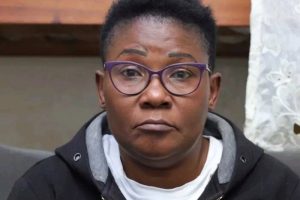
Abuja, Nigeria – May 6, 2025:
Deputy Spokesman of the House of Representatives, Hon. Philip Agbese, has openly accused the Benue State Government of complicity in the ongoing wave of killings in the state.
According to Agbese, the deteriorating security situation can be traced to the failure of Governor Hyacinth Alia to enforce the state’s anti-open grazing law.
In an interview with The Punch, Agbese expressed grave concern over the governor’s alleged neglect of a key legal framework that had previously curbed violent clashes involving herders and local communities. He maintained that Governor Alia’s refusal to implement the law has contributed significantly to the rising number of attacks on innocent citizens across Benue State.
House of Reps Set to Address Insecurity Nationwide
“As plenary resumes on Tuesday, the House is determined to take decisive action against insecurity across Nigeria,” Agbese said. “We are tired of holding moments of silence for innocent Nigerians being killed daily. Like the Speaker, Rt. Hon. Tajudeen Abbas always emphasizes, every Nigerian life matters deeply to the 10th National Assembly.”
Agbese reiterated the House’s unwavering commitment to fighting all forms of criminality, especially the continued killings and destruction of property in rural and urban communities.
Criticism of Governor Alia’s Handling of Anti-Open Grazing Law
He noted that the previous administration in Benue had implemented a robust anti-open grazing law designed to regulate pastoral activities and prevent violent conflicts. However, the current government, under Alia, allegedly dismantled the enforcement mechanisms and dismissed growing security concerns.
“Before his election, Benue had a working anti-open grazing law. That law has since been abandoned. The governor kept insisting that there were no issues in the state, citing the ECOWAS Protocol on free movement within West Africa,” Agbese explained.
While acknowledging the importance of regional mobility, the lawmaker clarified that the ECOWAS Protocol does not authorize undocumented or unrestricted movement, especially when it endangers lives.
“In the past, when herders entered new communities, they were required to introduce themselves to the locals. There was transparency and accountability. But Gov. Alia scrapped that. Now he’s beginning to realize the consequences of that decision,” he added.
Gov. Alia, Gov. Lawal Summoned by House Committee on Public Petitions
In a related development, Agbese confirmed that both Governor Hyacinth Alia and Zamfara State Governor, Dauda Lawal, have been summoned by the House Committee on Public Petitions. The summons, issued by Committee Chairman Hon. Mike Etaba, requests their appearance to address pressing concerns related to insecurity and governance.
When asked about potential repercussions if the governors fail to honor the invitation, Agbese remained hopeful. “Let’s not speculate. Thursday is still ahead. I believe they will respect the directive. There’s no reason to assume otherwise,” he stated.
The Bigger Picture: Rising Insecurity and Legislative Accountability
The call-out by Hon. Agbese reflects a growing frustration among lawmakers over the government’s handling of security challenges across various states. With attacks on farming communities, rural dwellers, and commuters on the rise, there is renewed urgency from the National Assembly to hold public officeholders accountable and push for lasting solutions.





